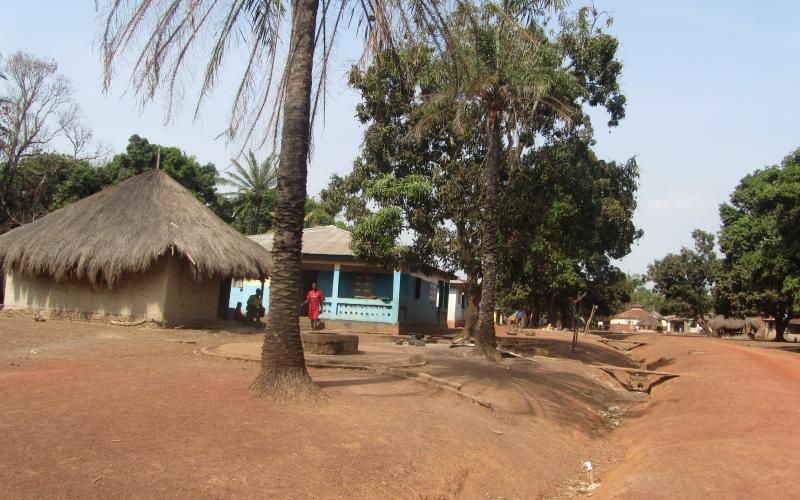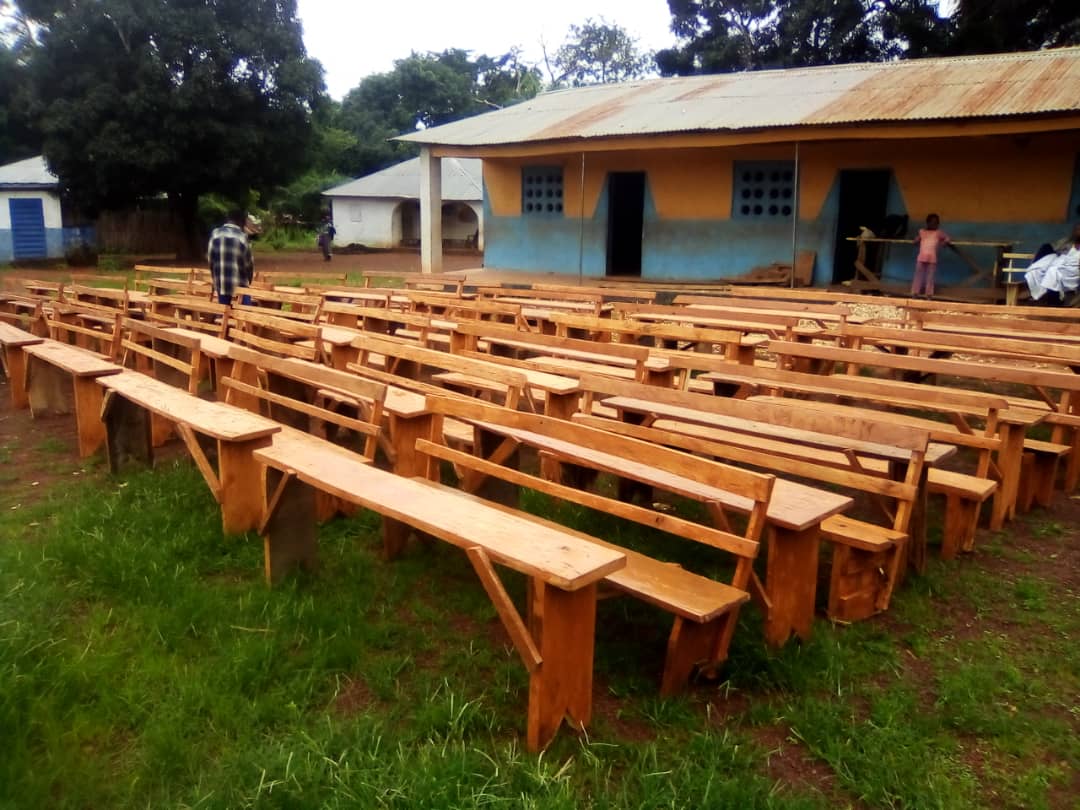
On our trip to Sierra Leone (see previous blog post), my wife and I had the opportunity to briefly visit the village of Kamawornie, tour the local primary and secondary schools, and meet with teachers, students, and parents. Our short stay in the village opened our eyes though to not only the desperate requirement for basic educational resources, but also to the fact that for a few dollars we could meaningfully address this need.
Desks and chairs for students
As the headmaster showed us around the primary school, we noticed the complete lack of desks in the grade one to three classrooms and very few in the higher grades. He pointed out that the school had been unable to afford desks for all the students so allocated those few that they had to the older students. Even in the higher level grades though there weren’t enough, forcing students to cram together three to a desk. Without even the most basic things like tables and chairs, the educational experience for these children suffered.
Following our visit, Abu Conteh, Develop Africa’s country head, worked with a local carpenter to come up with an estimate to build enough desks for the entire school. The total cost came to only $500 (or about $5 per desk), so we immediately sent the check to Develop Africa. Within a couple of months, Abu sent us the pictures above, exhibiting the furniture waiting to be taken into the classrooms. As a donor, we were awed at the sight and amazed that for such a nominal donation, we could make such a significant difference to the students’ educational experiences.
Teacher training
During our visit, we also met with some of the secondary school teachers. We were impressed with their dedication, but even more so when we discovered that many had been working for free. The village was too poor to pay them, and while the government would fund their salaries, they needed to have completed a part-time three-year teacher training course. Since the courses are offered only in larger cities, most of the teachers couldn’t afford the travel and living costs to attend them, let alone pay for the tuition. As a result, many farmed to support themselves and families while at the same time teaching full-time.
Abu let us know that $300 a year would cover the course tuition, short-term living expenses, and travel costs. We again were struck by how little it cost to make an impact. As a result, we are now funding the training expenses for two teachers and understand that they have already begun the course.
We look forward to hearing about their progress!
See photos of the benches and tables
By Parker Russell


